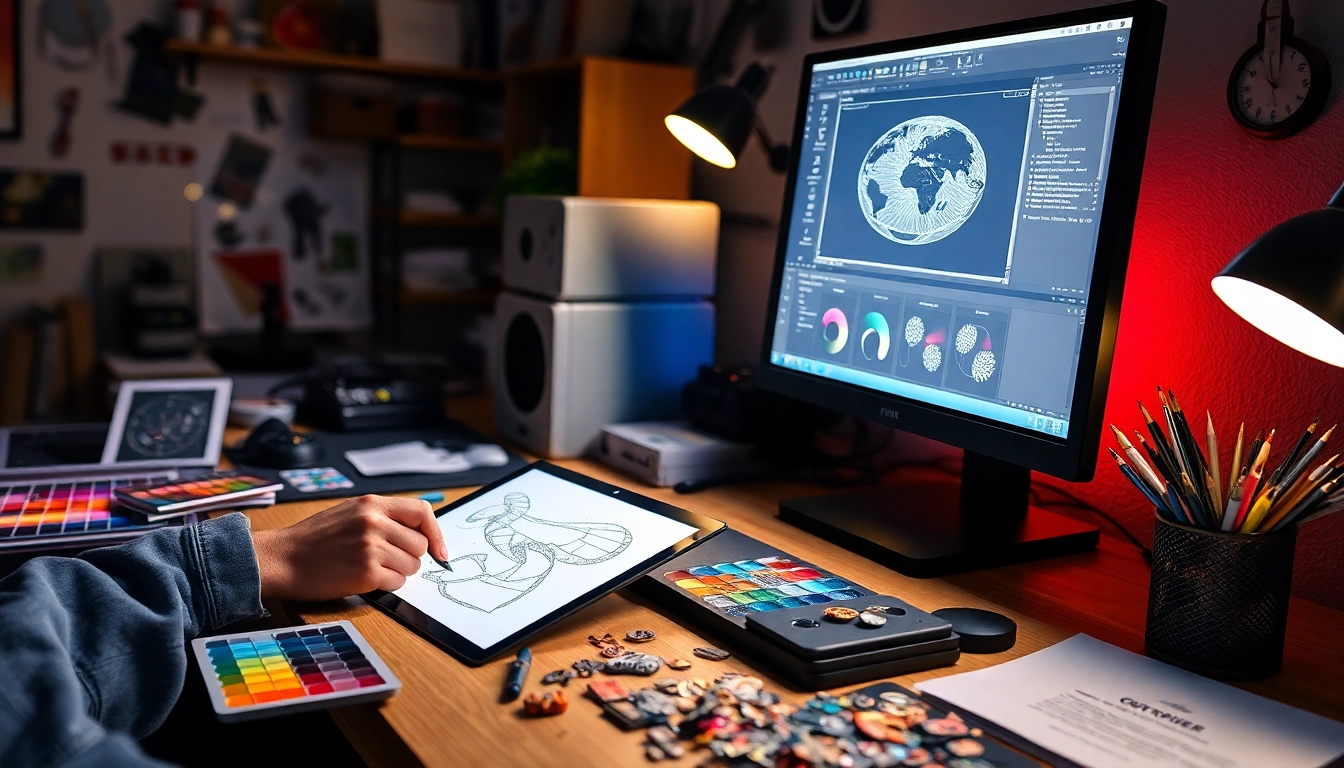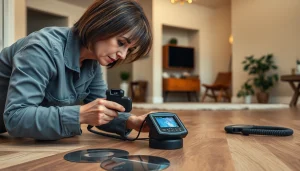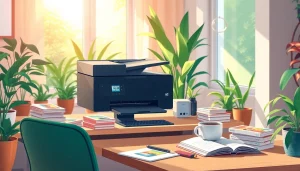Ultimate Guide to Custom Pins: Create Stunning Designs Today

What Are Custom Pins?
Introduction to Custom Pins
Custom pins are personalized badges or decorative pins made from various materials, often featuring unique designs, logos, or text. These small items have significant applications in branding, marketing, and personal expression. Whether for a corporate event, a charity fundraiser, or a personal keepsake, custom pins offer a versatile way to showcase identity and creativity. A key reason why many individuals and organizations choose to invest in custom pins is their ability to convey messages and promote engagement in a compact and eye-catching format.
Different Types of Custom Pins
There is a wide variety of custom pins available today, each designed for specific purposes and audience preferences:
- Soft Enamel Pins: These pins have a textured surface and are created from die-struck metal, with color recessed below the metal lines. They provide a vibrant look while maintaining detail.
- Hard Enamel Pins: Often considered more high-end, hard enamel pins offer a smooth and glossy finish. The enamel is polished to be even with the metal, creating a durable product that withstands wear and tear.
- Die-Struck Pins: These pins have a classic metallic appearance without color; instead, the design is created by stamping the metal. They are ideal for minimalist designs.
- Photo-etched Pins: Using a photographic process, these pins can incorporate intricate designs and vibrant images, perfect for detailed logos or artwork.
- Button Pins: Often more casual, these pins are typically made from recycled materials and have a distinctive rounded shape, making them ideal for bright graphics and slogans.
Applications of Custom Pins
Custom pins serve myriad functions across various sectors:
- Corporate Branding: Companies often use custom pins as part of their branding strategy to create a sense of identity among employees and customers.
- Events and Promotions: Custom pins are popular giveaways at trade shows, conventions, and other events to attract attention and keep the brand in mind long after the event finishes.
- Charity Fundraising: Nonprofit organizations frequently sell custom pins to raise funds and awareness for their causes, allowing supporters to wear their values visibly.
- Personal Keepsakes: Individuals use custom pins as gifts for special occasions, memorable experiences, or as a personal expression of hobbies, interests, or achievements.
Benefits of Using Custom Pins
Enhance Brand Recognition
One of the primary advantages of custom pins is their capacity to enhance brand recognition. When worn by employees, supporters, or clients, pins serve as a constant visual reminder of the organization or cause. This can be especially potent in settings such as conferences or community events, where the visibility of pins can create immediate connections among participants.
Effective Marketing Tools
Custom pins can be powerful marketing tools. Unlike traditional advertising, these pins can spread organically as recipients wear them. Each time someone dons a custom pin, they act as a walking advertisement, exposing the brand or message to a wider audience without additional cost. Furthermore, unique designs can spark conversations, leading to increased interest or inquiries about the entity represented.
Unique Gifting Options
Custom pins also provide unique gifting options. They can be tailored for various occasions—birthdays, anniversaries, or even as a thank-you gesture. Pins carry sentimental value, especially when personalized with designs that resonate with the recipient, making them cherished mementos.
Designing Custom Pins
Ideas for Custom Pin Designs
Exploring creative avenues for custom pin designs can lead to extraordinary outcomes. Here are some ideas:
- Logos and Branding: Incorporate a company logo or brand colors. This makes the pin instantly recognizable and aligns with corporate identity.
- Quotes and Messages: Engaging phrases or mottos can create emotional connections, especially for organizations focused on community and inclusivity.
- Shapes and Sizes: Think outside the box with custom shapes or sizes that align with the theme or mission of the pin.
- Themed Designs: Create pins that reflect seasonal themes, holidays, or specific events to keep the audience engaged throughout the year.
Best Practices for Custom Pin Design
When designing custom pins, a few best practices can help ensure their successful impact:
- Keep It Simple: Overly complicated designs can detract from the overall message. Focus on clarity and a strong focal point.
- Color Selection: Opt for colors that reflect the brand’s identity while ensuring good contrast for visibility.
- Test Designs: Create mock-ups and gather feedback from potential users to refine the design before final production.
- Emphasize Quality: Prioritize high-quality materials, as they enhance durability and the overall appeal of the pins.
Choosing the Right Materials for Custom Pins
The material of custom pins greatly influences the final product’s look and feel. Here are common materials to consider:
- Metal: This is the most common material, including finishes like brass, iron, or copper, which can enhance durability and appearance.
- Enamel: Soft or hard enamel can provide vibrant colors but comes with different tactile experiences and finishes.
- Acrylic: A more cost-effective option, acrylic pins allow for complex designs but may not have the same luxury appeal as metal pins.
Production Process of Custom Pins
How Custom Pins Are Manufactured
The manufacturing process for custom pins typically involves several steps:
- Design Finalization: After drafting and approval of the design, it’s prepared for production.
- Metal Die Creation: A die is created for the pin’s shape, which will guide the stamping of the metal.
- Stamping/Die Striking: The pins are stamped out of the metal using the die, creating the basic shape.
- Coating or Plating: Many pins receive a coating for protection or aesthetic enhancement through processes such as anodizing or plating.
- Enamel Filling: For enamel pins, color is applied and baked to ensure durability before final touches.
Quality Control Measures
Quality control is essential in the production of custom pins to ensure consistency and satisfaction. Important measures include:
- Materials Check: Ensure all materials used are of high quality, free of defects.
- Design Accuracy Surveys: Check that the final product matches the approved design specifications regarding color, dimensions, and finish.
- Functional Testing: Ensure pins fasten securely and do not risk being easily lost or damaged during use.
Timeframes for Custom Pin Production
The time required to produce custom pins can fluctuate based on several factors, including order quantity and the complexity of the design. Generally, standard production times can range from two to four weeks. Additional considerations, such as expedited shipping and rush orders, may also impact delivery schedules. Always discuss production timelines with your manufacturer to set realistic expectations.
Ordering and Using Custom Pins
Where to Order Custom Pins
There are many online platforms where you can order custom pins. Look for providers that offer design assistance, various pin types, and flexibility regarding order quantities. User reviews and past work examples can also help guide your choice to find a reliable manufacturer.
Cost Considerations for Custom Pins
The cost of custom pins typically varies based on factors like the type of pin, materials used, quantity ordered, and design complexity. It’s essential to balance quality with budget while considering long-term value; investing in higher-quality pins can yield better ROI through durability and enhanced brand perception.
Creative Ways to Use Custom Pins
Custom pins can be employed creatively in various scenarios:
- Incorporate in Events: Use them as part of attendee swag bags or packaged with registration materials for conferences.
- Donations and Fundraisers: Offer custom pins as incentives for donations or as part of fundraising initiatives.
- Employee Recognition: Implement custom pins as part of an employee recognition program to reward achievements.






